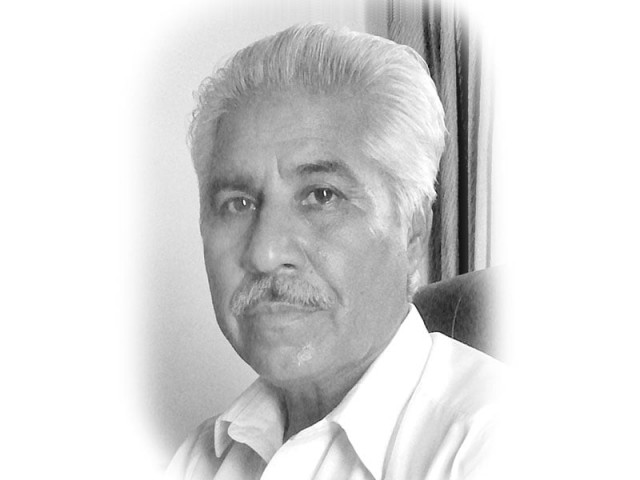A different lens: The scientific roots of classical Pashto poetry
Dr Qazi Hanifullah Hanif explains how there is more to our lyrical <br /> verses than love and war.

A different lens: The scientific roots of classical Pashto poetry
“This region’s classical poetry contains many unnoticed scientific underpinnings,” Dr Qazi Hanifullah Hanif tells The Express Tribune. Hanif, 56, has recently completed his doctorate from the Pashto Academy at the University of Peshawar—with which he has been affiliated since 1986—on a previously-untouched topic: Scientific thoughts in Pashto poetry. His six years of research was supervised by senior Pashto academician Pervaiz Mahjoor and former chairman of the chemical science department at UoP, Imdadullah Khan.
Hanif tells us there might be a much deeper meaning to Pashto poetry than what meets the eye, but the poets have gotten little credit in this regard. Poetry has long been used as a voice for philosophical and scientific thought in many parts of the world. Amongst Pukhtuns, however, writing is usually categorised into love, war, or in certain cases, Sufi mysticism. Hanif claims in his thesis many brilliant thoughts have thus gone unobserved.
“There are still people who believe poetry is (only) about feelings and emotions, while science is about facts,” said Hanif. “Nothing could be further from the truth.”
He added the classical poetry of Mirza Khan Ansari, Kazim Khan Sheda, Rahman Baba, Khushal Khan Khattak and modern poets like Hamza Baba, Shamsul Qamar Shams and Dr Muhammad Azam, contain knowledge of physics, astronomy, chemistry, biology, mathematics, medicine and botany. These are also the seven fields into which the doctor’s thesis is divided.
The famous verse of Khushal Khan Khattak ‘Dur au gohar’ explains the creation of human beings. The verses of Kazim Khan Sheda discuss mercury and its use to measure temperature.
On the other hand, Hamza Baba and Rahman Baba talk about how everything in the universe has been created in pairs and use that to explain Creation—a notion many classical western intellectuals would agree with. A verse written by the great Sufi Rahman Baba:
Also in Hamza Baba’s poetry can be found a reflection on the creation of different metals and precious stones inside the earth.
“He speaks of the centuries of chemical reactions it takes for such rare minerals and stones to form,” said Hanif. “Whether our poets have reached these profound meditations consciously or unconsciously, their work is a tribute to the superiority of their thoughts.”
Mirza Khan Ansari, a famous classical Pashto poet, has discussed the reduction of oxygen and intensity of fires as one goes uphill.
Another verse of his talks of budding and grafting techniques – a process whereby tissues from two different plants are merged to create a new one. These horticultural techniques have now become a popular method of breeding new fruits and plants, especially roses.
The researcher said although he is proud of classical Pashto poets, he is not content with the quality of work produced by contemporary writers. Only a few of them are committed enough to lead our nation to a brighter future, he adds.
Published in The Express Tribune, September 1st, 2014.













COMMENTS
Comments are moderated and generally will be posted if they are on-topic and not abusive.
For more information, please see our Comments FAQ